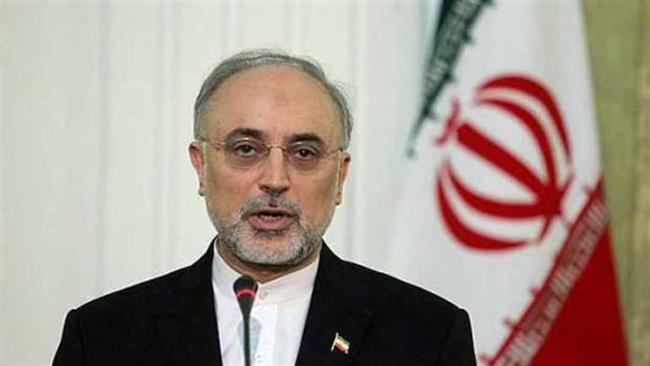Ali-Akbar Salehi said on Monday that Iran has entered a new phase in the international arena after the implementation of the Joint Comprehensive Plan of Action (JCPOA).
“I envisage a promising future for the [Iranian] nation after [the implementation of] the JCPOA. The nation is standing on a springboard,” Salehi said.
Salehi made the remarks at a ceremony marking the 37th anniversary of the victory of the Islamic Revolution that put an end to the monarchy of the US-backed Pahlavi regime in the country.
On January 16, Iran and the five permanent members of the UN Security Council – the United States, Britain, France, Russia and China – plus Germany started to implement JCPOA they had concluded in July 2015.
After JCPOA went into effect, all nuclear-related sanctions imposed on Iran by the European Union, the UN Security Council and the US were lifted. Iran, in return, has put some limitations on its nuclear activities.
The Iranian official said that Iran has managed to make significant progress in the international arena following the conclusion of the nuclear agreement, adding that the Iranian nation’s right to peaceful nuclear technology has been restored through the JCPOA.
Iran marks Islamic Revolution anniversary
On Monday, millions of Iranians across the country began celebrations marking the 37th anniversary of the victory of the 1979 Islamic Revolution
Also known as the Ten-Days Dawn, the ceremonies mark the return from exile of the late founder of the Islamic Republic Imam Khomeini, and commemorate a chain of events that culminated in the 1979 Islamic Revolution.
Currently, a special ceremony is underway at Imam Khomeini’s mausoleum in Tehran, with thousands of people in attendance.
Simultaneously, special ceremonies are being held in more than 80 Iranian cultural centers in 60 countries to mark the first day of the Ten-Day Dawn period.
Imam Khomeini spent more than 14 years in exile, mostly in the Iraqi holy city of Najaf. He also spent some time in Turkey and France, before his return to Iran.
On Saturday, Leader of the Islamic Revolution Ayatollah Seyyed Ali Khamenei visited the mausoleum of the late Imam Khomeini to pay tribute to the architect of the Islamic Republic.
President Hassan Rouhani and his cabinet ministers also paid tribute to Imam Khomeini at his mausoleum on Sunday. They were accompanied by the Imam’s grandson, Seyyed Hassan Khomeini.
